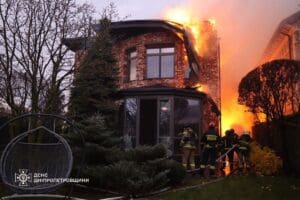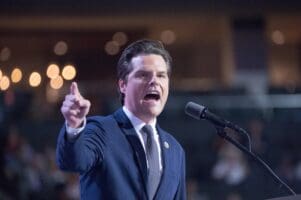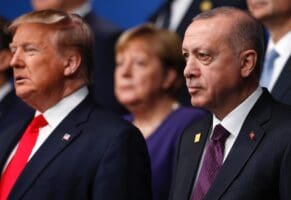The Geneva Process: Toward a Political Solution in Syria
On Tuesday December 12, 2017, The SETA Foundation at Washington DC hosted a panel discussion, “The Geneva Process: Toward a Political Solution in Syria” with Mona Yacoubian, Senior Advisor, Syria, Middle East and North Africa, U.S. Institute of Peace; Andrew Tabler, Martin J. Gross Fellow, The Washington Institute for Near East Policy; Hassan Hassan, Senior Fellow, The Tahrir Institute for Middle East Policy; and Dr. Kadir Ustun, Executive Director of The SETA Foundation at Washington D.C. The discussion was moderated by Dr. Kilic Kanat, the Research Director of The SETA Foundation.
Hassan Hassan began by speaking about the recent developments in the Astana process. Hassan explained that the Russians have ensured that Assad has won the strategic war in Syria, forcing people to realize that the regime is here to stay. He mentioned that another milestone achieved in the process was during the summer of 2016, when Turkey started moving away from removing Assad and instead focused on securing its borders. He argued that the Astana process and Sochi was another major milestone. The Geneva talks led to Resolution 54, in which the five permanent members of the UN Security Council agreed that there had to be a political transition in Syria and developed a formula to reach one.
Kadir Ustun spoke about Turkey’s involvement in Syria. He spoke about the US’s unwillingness to lead on the ground, and diplomatically choosing to shame and blame Russia instead of taking the political lead. He followed up this point by outlining that Turkey’s key strategic interests in Syria include the YPG’s efforts to create a state in Northern Syria, halting further refugee influx, and continuing to support the opposition. More specifically, Ustun explained that when Russia tries to open the conversation of involving the YPG in the political resolution process, Turkey has strongly opposed it because Turkey sees the YPG and PKK as essentially the same threat, so this is a major issue and spoiler of any kind of political developments. “As a destabilizing factor,” he added, “these are also problems standing in a way of a political solution.”
Andrew Tabler explained how the US’ Syria policy, which was initially focused on combatting ISIS, has morphed into a policy aimed at preventing it from coming back. This focus on the military campaign against ISIS has affected other US foreign policy issues, such as the anti-Iranian aspects. More specifically, the Trump administration’s central foreign policy issue is Iran, so this issue will impact the US reaction to other events on the ground. Kanat followed up by asking Tabler about the US position in the peace process. Tabler said that the US will continue to push for the Geneva Communique but the question is whether the parties on the ground follow this lead, or the Russian lead. The Russian plan is to try to push that process in favor of the Assad regime as possible.
Mona Yacoubian focused on the end-game of the Syrian Civil war. She maintained that Assad will still be in power at the end of the war, and she stressed that it would not be the Geneva process that will lead to a solution, but rather the intervention of Russia. She stated that Turkey and Saudi Arabia have the notion of a more malleable Syrian opposition that does not insist on Assad leaving before the political transition process. Discussing Russia’s role in more detail, she mentioned that the UN Security Council Resolution 3332, which allows for cross- border assistance in Syria is up for renewal next month. The Russians have indicated that they want to revoke this resolution and put an end to humanitarian and stabilization assistance on the ground in order to strengthen Assad’s sovereignty. “This could also give more control to the Assad regime, and could create newly besieged areas on the south as the regime moves to extend their control,” she said, further explaining that the Russian preference is that Assad gains the international legitimacy of the United Nations. The insistence that Assad has to leave before the transition has eroded over time Yacoubian mentioned. However, she thought that this will increase Israeli discomfort with any sort of Iranian military presence in Syria, and it might become a larger issue in the future. Yacoubian finished by saying that developments on the ground will be the ones to determine the future of the peace process.
The Geneva Process: Toward A Political Solution In Syria






















